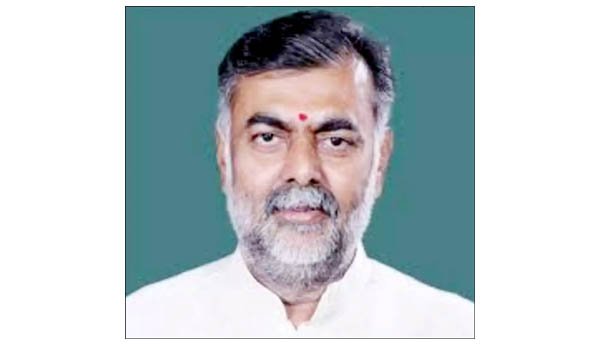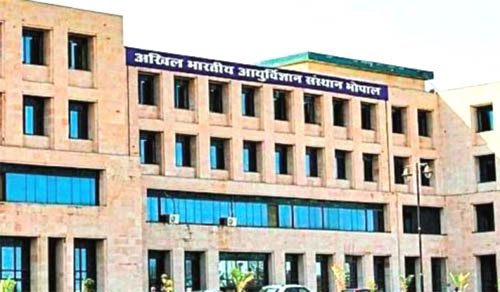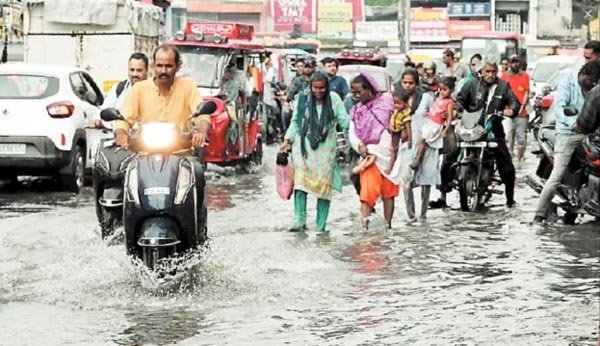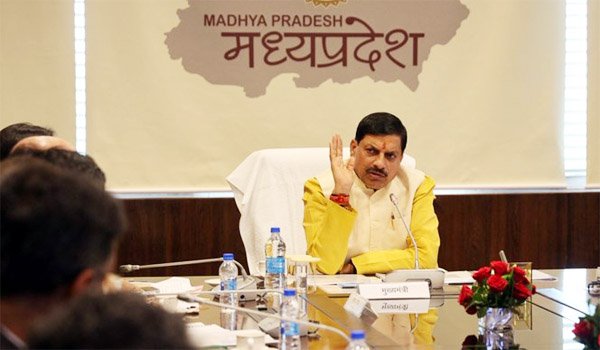- Dissatisfaction and opposition have always been there
- Realizing the situation, both parties did not cut many tickets
Pankaj Pathak, Bhopal
Almost all the candidates of Congress and BJP have been declared for the assembly elections to be held in Madhya Pradesh on November 17, 2023, and as always, the voices of conventional dissatisfaction, anger, protest and rebellion are becoming openly vocal in both the parties. Congress has also changed seven candidates for this reason. But BJP has not done so yet. Till the time of writing these lines of this article, it is yet to declare candidates in two assembly constituencies. Congress has released the lists of candidates for all 230 assembly constituencies. The process of filing nomination papers has also started from October 21, which will continue till October 30. Nomination papers will be scrutinized on October 31 and names can be withdrawn till November 2. Counting of votes will take place on Sunday, December 3. In this way, candidates of all parties will get two weeks time for the election campaign as usual. The election process will be completed by December 5. The new government will be formed in the first weekend of December.
What turn will events take?
As far as which side the camel will sit is concerned, it will become clearly visible in the two weeks of the election campaign. Then during voting one can get some idea from the crowd at the booths of political parties at the polling stations. The surveys that have come out so far are indicating a hung as well as a tied contest. The betting market is said to be in favor of Congress. Some political observers are already saying that the atmosphere is in favor of Congress. They are even saying that the head-to-head in BJP will go against it, but they are speechless on the chaos going on in Congress. Here I have a neutral opinion that in the history of Madhya Pradesh, due to the dissatisfaction and rebellion arising after the ticket distribution, BJP and Congress have not been defeated. The victory and defeat of both these parties have been due to burning issues. MP has never been a political battlefield for BSP, SP, AAP, Left parties and independents and they have never been able to emerge as a factor in this state. There have been no more than twenty-two MLAs from the third power here. These MLAs of the third power ultimately merge with Congress and BJP.
BJP high command has softened a bit – For some time now it seems that the BJP high command has relaxed a bit in its strict attitude and centralization of all functions. This is the reason why the number of votes in BJP’s fourth and fifth lists has been less than expected. Tickets of a total of 29 MLAs were canceled, including 3 ministers. From the first to the last list, confidence has been reposed in many of the losers. But the common party worker would hardly like it. Last time, it was because of this ad hocism that BJP lost, after winning three consecutive elections. Perhaps the central leadership of the party did not want to upset the leaders who were MLAs from one to eight terms. Not only this, the party changed the parameters created by itself. It also awarded tickets to leaders above 75 years of age. Two best examples of this are from Vindhya region – Nagendra Singh of Nagaud assembly constituency is 80 years old, while the name of the candidate from Gudh assembly constituency is also Nagendra Singh and he is 76 years old. What’s more, former Finance Minister Jayant Malaiya, who is going to turn 77 on February 20, has also jumped into the fray. Whereas he had lost in the last assembly elections. This time he wanted to get a ticket for his son Siddharth. It is clear that the high command does not want to get into further trouble. This is the reason why he left the final lists in the hands of the state leaders. Shivraj played a great role in this.
BJP has curbed nepotism a little – One good thing from BJP’s side is that it has curbed nepotism to a great extent, but there are many inconsistencies and contradictions in it. Yes, that’s it, so much familyism prevailed that instead of giving the ticket to the son, it was given to the father. Or instead of giving the ticket to the father, they gave it to the daughter. Or instead of giving the ticket to the younger brother, they gave it to the elder brother. Or gave tickets to their relatives. Union Minister Narendra Singh Tomar and party’s national general secretary Kailash Vijayvargiya and former ministers Nagendra Singh Nagaud and Jayant Malaiya have had to become candidates in place of their sons. Gaurishankar Bisen himself wanted the ticket, but his daughter Mausam got it. On the other hand, former minister Umashankar Gupta was wanting a ticket for his daughter, but the party did not pay any attention. Here, the brothers of two Union Ministers Prahlad Singh Patel and Faggan Singh Kulaste were not made candidates and were ordered to contest the elections themselves. Former minister Deepak Joshi, son of a former Chief Minister Kailash Joshi, had to leave the party and join Congress due to fear of not getting the ticket, while family members of four former Chief Ministers were made candidates. These are – Virendra Kumar Sakhalecha’s son and Science and Technology Minister Omprakash Sakhalecha, Sunderlal Patwa’s nephew Surendra Patwa, Uma Bharti’s relatives Prahlad Lodhi and Rahul Lodhi and Babulal Gaur’s daughter-in-law Krishna Gaur. In contrast, three Dalit leaders did not fare well. Karnataka Governor Thawarchand Gehlot, BJP’s Central Election Committee member Dr. Satyanarayan Jatia and sons of former minister and brother-in-law of Union Minister Virendra Kumar Khatik, Dr. Gaurishankar Shejwar were not contesting the elections. But tickets have been given to families on many seats, if the entire list is looked at carefully, many examples of other types of familyism will be found.
BJP-Congress’s litmus test
It is true that due to the anti-incumbency of the BJP rule of eighteen and a quarter years, there is not much inclination in favor of power in the state, due to which Congress came to power in 2018. Digvijay Singh says that in the last elections the anti-incumbency trend was less, but this time it is more. But Digvijay has also said that this is the last chance for us. Not only this, this will also be the last opportunity for Kamal Nath, because at the time of the next assembly elections after five years, he will be 82 years old. He is going to turn 77 on November 18. Kamalnath is only three months older than Digvijay. Thus, Congress is more in a do or die situation. As far as BJP is concerned, it has been in power for three consecutive elections. Despite losing last time, it had succeeded in forming the government by fanning the rebellion of Jyotiraditya Scindia after the rule of Kamal Nath for 1.25 years. But BJP is leaving no stone unturned to avenge the previous defeat. This is the reason why till now it has made announcements worth Rs 1.25 lakh crore. But this time the responsibility is not only on all the prominent leaders of the state, but the high command and Rashtriya Swayamsevak Sangh are also putting full emphasis on it. Everyone is fighting this battle of prestige.
Shivraj-Kamalnath did well
Shivraj and Kamal Nath had a good time in the ticket distribution done by BJP and Congress. The Congress high command had given a free hand to Kamal Nath since last time. Shivraj got the decision making rights in the last lists. While holding the post of party president, Kamal Nath has entrusted the responsibility in the organization to the supporters of the leaders of all the factions of the party. Even in ticket distribution, he maintained coordination with Digvijay Singh and gave full importance to Suresh Pachauri, Arun Yadav, Ajay Singh and Kantilal Bhuria. The public spat between Digvijay and Kamal Nath definitely became a topic of discussion, but in reality it was not a serious difference of opinion. Actually this was an example of Kamal Nath’s blunt behavior. But both of them are friends, like Shivraj Singh Chauhan and Narendra Singh Tomar.
‘Familyism’ prevalent in Congress
On the other hand, ‘familyism’ is rampant in Congress. Many examples can be found in the complete list. The biggest example is that of Digvijay Singh. His son Jaivardhan Singh and younger brother Laxman Singh are contesting the elections, three close relatives are also in the fray. These are- former Deputy Speaker of the Assembly Rajendra Kumar Singh, former Leader of Opposition Ajay Singh and MLA and former President of Madhya Pradesh Youth Congress Priyavrat Singh Khichi. Digvijay himself is the National General Secretary of the party and a member of Rajya Sabha. Similarly, a total of half a dozen people including him, his family and his relatives are in active politics of Congress. On the other hand, Kamalnath’s son Nakulnath is a member of the Lok Sabha. Kamleshwar Patel, son of former minister Inderjit Kumar Patel, is again in the fray, who is also a member of the National Executive of Congress. Former Union Minister Arun Yadav’s younger brother Sachin and Kantilal Bhuria’s son Vikrant have also been made candidates.











